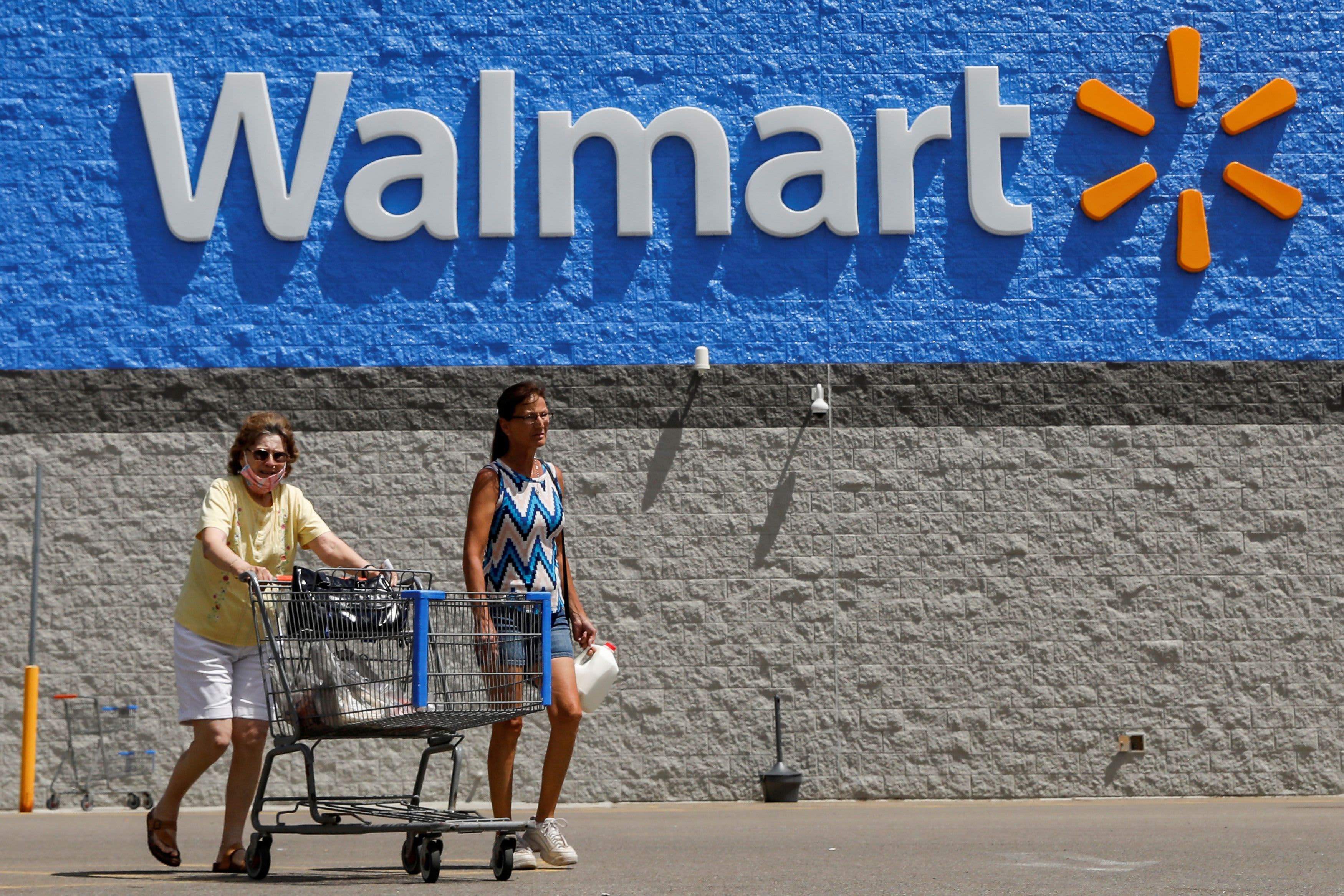Walmart enlists The Trade Desk as it plots big growth for its ads business

A shopper who refused to wear a mask is seen leaving a Walmart store in Bradford, Pennsylvania, U.S. July 20, 2020.
Brendan McDermid | Reuters
Walmart is renaming its ads business “Walmart Connect,” and announcing a number of strategic moves, including a new offering through ad tech company The Trade Desk.
The moves are meant to help Walmart in its attempts to grow the segment by more than ten times in the next five years, the company told CNBC, and could help Walmart take on competitor Amazon. Walmart Media Group boasts about its “massive scale” and “massive reach” to advertisers, saying 160 million customers visit its stores or its website every month.
But it’s still a small part of the company’s revenue base. In its 2020 annual report, the company said Walmart Media Group along with “fuel and financial services and related products” make up less than 1% of its annual net sales, which amounted to $524 billion.
By way of comparison, in the third quarter, Amazon’s “Other” business segment, which “primarily includes sales of advertising services,” accounted for $5.4 billion in revenue, nearly 6% of the company’s total. It’s consistently growing more than 40% on an annualized basis.
Though Walmart’s ads business is smaller than its tech competitors, the segment has gotten a supercharge during the pandemic with so many consumers buying groceries and other items online.
What Walmart Connect will include
To broaden its reach, Walmart is partnering with The Trade Desk, which has technology that helps brands and agencies reach targeted audiences across media formats and devices.
The companies are building what’s known as a “demand-side platform” (DSP) that will use Walmart shopper data to place targeted ads across the web, not just on Walmart’s own sites. AdExchanger reported last year that Walmart Media Group was running a bake-off between Xandr and The Trade Desk to choose a partner for off-site advertising.
“We’re pretty confident that we’re going to be able to grow this business to become one of the top 10 advertising platforms in the U.S. over the next few years,” Walmart Chief Customer Officer Janey Whiteside said in an interview. She said the physical footprint is a major differentiator. “If somebody sees an ad online and later buys that [item] in the store a day, a week, later, we can connect that together … which historically, advertisers haven’t been able to get.”
Until now, Walmart has operated a display advertising network, which lets advertisers reach Walmart customers on- and off-site, but those off-site offerings have only been available through its managed service. The DSP, other hand, will let advertisers buy directly. The company said when the DSP launches, advertisers will have access to all inventory that The Trade Desk offers, including connected TV, video, audio, mobile and display.
Walmart is also growing its business on its own digital properties, including Walmart.com and its app. There, it uses techniques like search and display advertising to put advertiser messages “right next to where customers are making purchasing decisions.” The company says last fiscal year it saw this segment double in revenue and in the number of advertisers using it.
Lastly, Walmart said it will allow advertisers to buy placement on in-store TV walls and self-checkout screens, covering more than 170,000 digital screens in more than 4,500 stores. The company said these can be delivered with date, time and geographic specificity. Whiteside said this could take the form of contextual ads that are appropriate for the weather or that would make sense for a particular hyperlocal region.
“We know enough about what cereals you’ve looked at, what cereals you’ve bought, whether you’ve ever been interested in oatmeal or not to be able to place an oatmeal ad at the checkout counter, or even at the checkout screen for you,” she said.
The company also wants sell advertisements in its events, like the drive-in movie events it hosted last year, or drive-thru Halloween trick-or-treating.
“Think about the highly contextual, relevant opportunities for advertisers to be part of that, whether it’s through ads on-site, sampling, all the things that we can do,” Whiteside said.
–CNBC’s Melissa Repko contributed reporting.
Nominations are open for the 2021 CNBC Disruptor 50, a list of private start-ups using breakthrough technology to become the next generation of great public companies. Submit by Friday, Feb. 12, at 3 pm EST.